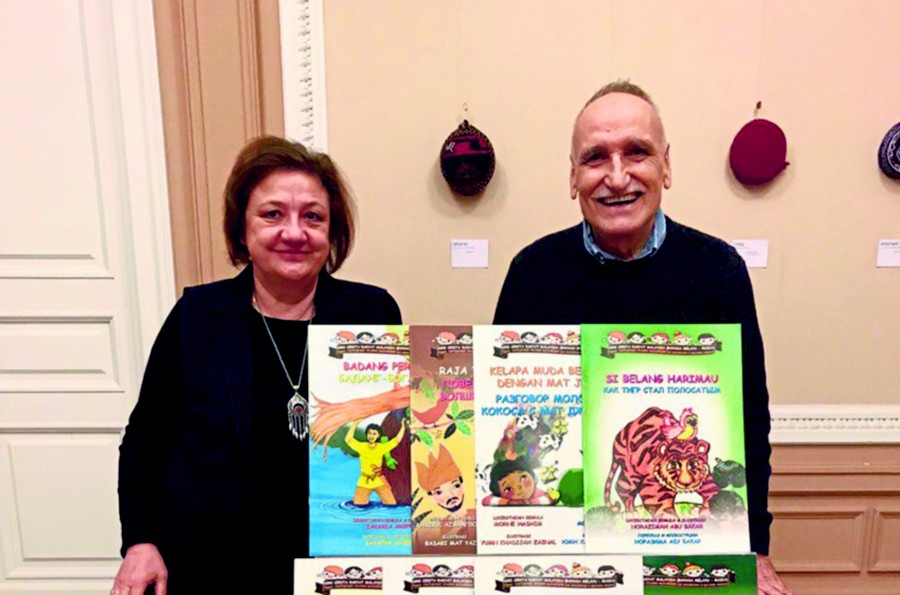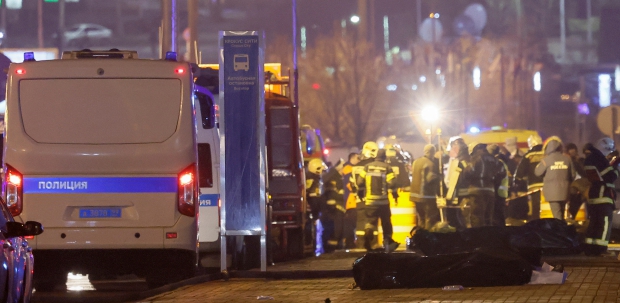As I arrived in Kuala Lumpur recently, I received a phone call from Federation of National Writers Association (Gapena) secretary Norazimah Abu Bakar, who invited me to meet Gapena's chief 1, Datuk Zainal Abidin Borhan.
I thanked her for the invitation, but said that I couldn't, yet. I had to start a seven-day quarantine first, in my daughter's apartment.
This was to be followed by two days of Chinese New Year and Federal Territory Day celebrations. There was almost no time left for meetings. I was allowed to leave the university in Moscow for only two weeks.
I haven't been able to do everything I set out to do. I wasn't able to meet Dewan Bahasa dan Pustaka (DBP) director-general Datuk Abang Sallehuddin Abang Shokeran to discuss issues of cooperation and publishing translations of Russian classics into Malay.
Nevertheless, after finishing the quarantine, I visited DBP and was happy to learn that my monograph, The Great Russian Poet Pushkin and the World of the East, had been published.
Then I immediately drove to the nearby Gapena headquarters where my friends — Zainal Abidin, Norazimah and Hamzah Hamdani — were waiting.
I was treated to a traditional breakfast that Gapena is famous for, my favourite Malaysian dishes — nasi lemak and teh tarik.
An interesting conversation took place.
I was told about the activities of Gapena, which recently celebrated its 50th anniversary, and I shared information about the work of the Nusantara society in Moscow.
At the end of the meeting, I received as a gift 39 books published by Gapena, which I promised to transfer to the Oriental Centre
of the Russian State Library in Moscow.
Among the books are Hikayat Nakhoda Muda from the "Karya Agung" series, Hamzah Hamdani's book of memoirs and 21 Malay folk tales with Russian translation, which Gapena once commissioned me to do.
The tales are retold for children by Malaysian writers and illustrated by wonderful artists. My role as a translator allowed me to appeal to children to read more fairy tales, because they contain the wisdom of the people.
Among other things, I wrote: "All children love fairy tales! I love them too! Because, firstly, justice always triumphs in fairy tales!
"And, secondly, in fairy tales, you can meet amazing fairy tale characters, with miracles and magic! With the help of allegories, in an allegorical manner, the age-old wisdom of the people is laid down in fairy tales.
"Fairy tales teach goodness and humanity, good always defeats evil, although the path to victory can be difficult. But, if you believe in yourself, do not deviate from your principles, then everything will work out."
A long time ago, even Russian poet Pushkin used to say: "In the evening, I listen to fairy tales and thereby redress the shortcomings of my upbringing. What a delight these stories are! Each is a poem!"
Returning to Moscow, I could not immediately meet the director of the centre, Marina Melan-tieva, due to Covid-19 restrictions. But as soon as the restrictions were lifted, I hurriedly fulfilled what I promised to Gapena.
And now all the books are at the disposal of Russian readers. And a letter of thanks from the director of the centre flew to Gapena: "The Oriental Centre of the Russian State Library presents its compliments and would like to thank you for the donated books in Malay.
"No doubt these 39 books will be helpful and interesting for the readers' research in literature, culture and history of Malaysia. These books will definitely find their place in the collection of Oriental literature and will be accessible to readers."
These contacts, in my opinion, continue the civilisational dialogue between Russia and Malaysia.
It allows peoples of both countries to better understand each other through books. Outstanding authors and their works can "see" a wider range of readers not only in their own country.
The writer, writing from Russia, is a former lecturer of Universiti Malaya





